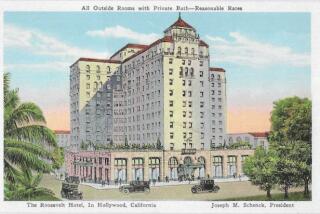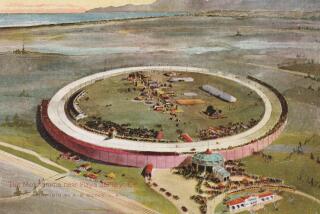People and Events
- Share via
It’s the question pondered by arcade players down through the ages: Does anyone playing one of those mechanical crane games ever succeed in scooping up a prize?
Count Los Angeles City Councilman Nate Holden among the empty-handed.
“I can remember going to carnivals as a kid with my pennies and nickels and never winning anything on those machines,” Holden said.
The council’s Intergovernmental Relations Committee--of which Holden is a member--and the Los Angeles Police Department would like to see the machines outlawed.
That’s why the committee voted to go on record opposing a bill sponsored by Assemblyman Frank Hill (R-Whittier) that would classify the crane machines as games of skill, as opposed to games of chance. State law bans games of chance, such as slot machines.
The crane game is a coin-gobbling contraption operated by a player who punches buttons or moves a joy stick in an attempt to position the claw tantalizingly over a prize in a bin, clutch it and then lift it out.
Hill said he was asked to carry the bill by Nickels and Dimes Inc., an operator of family amusement centers that says it’s been harassed by members of the San Diego and Los Angeles police departments, who keep shutting down their crane machines.
LAPD vice detectives maintain that the games are simple to rig in ways that are undetectable, especially in this electronic age.
Hill’s measure, which would also establish penalties for rigging the machines, passed the Assembly by a 62-9 vote last week and now goes to the Senate. The Assembly debate occasioned a few jokes, such as Hill’s observation that a colleague had obtained his wedding ring on one of the crane machines.
But Hill didn’t think it funny when told of the LAPD’s opposition to his bill.
“I can’t believe these guys don’t have anything better to do,” the lawmaker said.
Thursday was Ditch Day--”Star Wars” meets “Animal House,” it’s been called--at Caltech.
It’s an occasion for seniors to let off steam from the pressure of academics by locking up their rooms in inventive ways and challenging underclassmen to unravel the secret of gaining entry.
One year, a senior left the completely disassembled motor of a 1963 Chevrolet on his doorstep. The would-be intruders successfully figured that the engine had to be put back together into working order, whereupon the motor’s exhaust was directed into a tube protruding from the room. The exhaust tripped a mechanism and opened the lock.
This year, Marty O’Brien, a sophomore in chemical engineering, showed up at one senior’s door to find that it had been replaced by a piece of plywood divided into six miniature doors that were wired into a computer in the doorway. Fragments of the combination for opening the entire door were hidden behind the mini-entrances, each of which could be opened only by answering questions posed by the computer.
Another group of underclassmen was sent out to the Santa Monica Pier, where they were instructed to shoot a full-length kung fu movie and have the film back at the school by 5 p.m. “Fists of Fury on the Carrousel” maybe?
If you can’t trust a Hollywood publicist, who can you trust?
You may recall that the latest Oscar headed for the auction block had been redeemed from a Santa Monica pawn shop after its owner read that a 1951 statuette for Best Picture (for “An American in Paris”) had fetched $15,000.
Publicist Chris Harris promised that this Oscar, a 1961 winner, was “in a very prestigious category” and would undoubtedly “outrage” the Academy of Motion Picture Arts and Sciences when unveiled at a press conference. Until then, he teased the world by showing the statue but covering the purportedly lofty nameplate.
Now it’s been bared.
While members of the media waited breathlessly at the Collector’s Book Store in Hollywood, the statuette was revealed to be for . . .
Envelope please . . .
Best Short Subject in a Cartoon Category! And the winner that year, as everyone remembers, was the Yugoslav entry, “Ersatz.”
The minimum asking price, Yugoslav short-subject cartoon buffs might be interested to know, is $7,500.
More to Read
The biggest entertainment stories
Get our big stories about Hollywood, film, television, music, arts, culture and more right in your inbox as soon as they publish.
You may occasionally receive promotional content from the Los Angeles Times.










